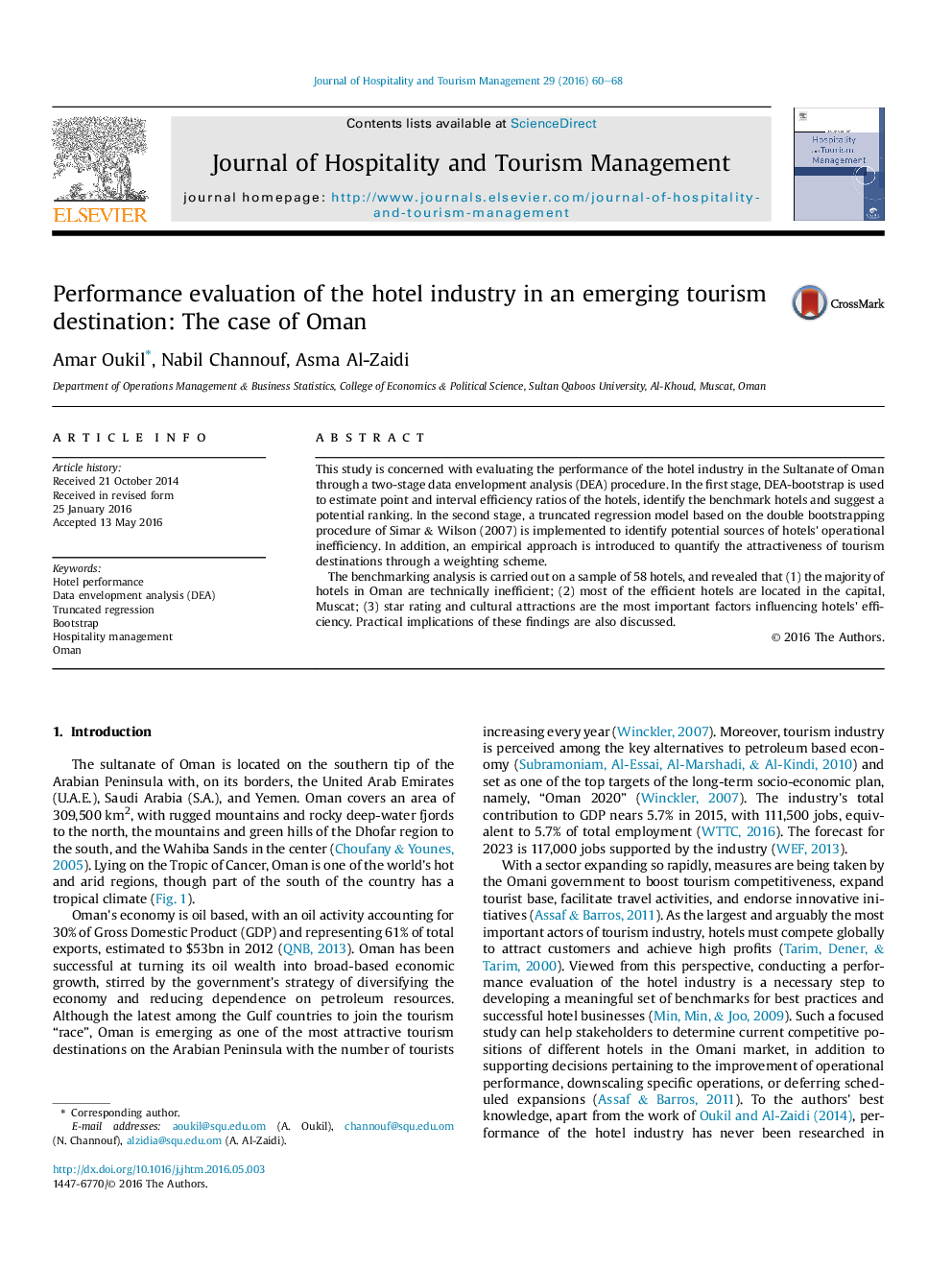| Article ID | Journal | Published Year | Pages | File Type |
|---|---|---|---|---|
| 1011352 | Journal of Hospitality and Tourism Management | 2016 | 9 Pages |
This study is concerned with evaluating the performance of the hotel industry in the Sultanate of Oman through a two-stage data envelopment analysis (DEA) procedure. In the first stage, DEA-bootstrap is used to estimate point and interval efficiency ratios of the hotels, identify the benchmark hotels and suggest a potential ranking. In the second stage, a truncated regression model based on the double bootstrapping procedure of Simar & Wilson (2007) is implemented to identify potential sources of hotels' operational inefficiency. In addition, an empirical approach is introduced to quantify the attractiveness of tourism destinations through a weighting scheme.The benchmarking analysis is carried out on a sample of 58 hotels, and revealed that (1) the majority of hotels in Oman are technically inefficient; (2) most of the efficient hotels are located in the capital, Muscat; (3) star rating and cultural attractions are the most important factors influencing hotels' efficiency. Practical implications of these findings are also discussed.
